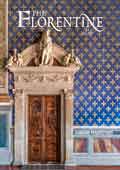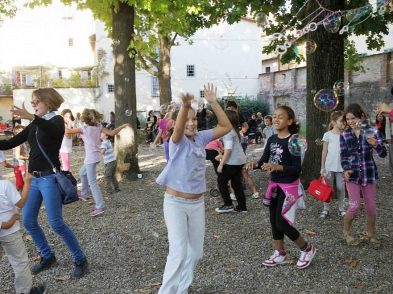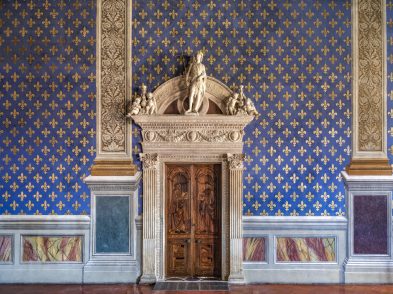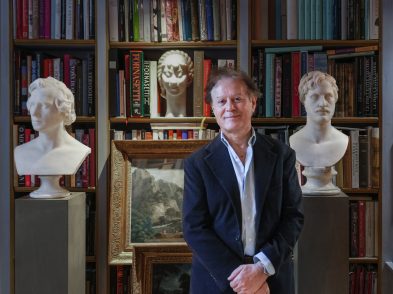On a trip home for the Christmas holiday, I met up with a Florentine friend in San Francisco, where the rogue moved two years ago for a short-term photography gig and a girlfriend whose infatuation for him lasted much less time than his newfound love for the Bay area. Carlo brought a portfolio of spectacular shots that I was able to appreciate only mildly, and he shared a series of zoomed-in ideas that left me feeling dazzled.
Compared to the Carlo from Christmases past, this more accurately shaved man had a face that didn’t look half as tight. His eyes were the same though: they still saw everything, inside and outside a lens.
‘What do you like most about American living?’ I wanted to know.
‘Many things,’ he replied, giving a slight shrug and leaning in as if for a secret. He had not lost the Italian need to be near during conversation. ‘I like how people express wonder about the simplest of things. And they string lights everywhere, and it’s not like in Italy, where the merchants do it just to incite Christmas shoppers to buy. American people truly believe in things that sparkle. What other country puts fifty stars on its flag? It’s as if they expect those stars, and the sky-and ultimately, everything else-to shine.’
Wow. Statements like that come around once upon a comet. It was one of those thoughts that light up the mind-sky, a single trailing flash that later makes you wonder if you really witnessed it at all. For me, the contrast between New World naïveté and Old World cynicism is a daily distinction that’s as palpable as the difference between a huge pancake breakfast and a tiny cup of dark-brown pitch. Inevitable to my brand of bicultural living, the struggle between European skepticism and American sureties has always lain heavy in my stomach, indigestible, difficult to reconcile. Carlo had just made a quick statement that was worth mulling over for six months at least, and trust me, that was my plan.
Oblivious to my musings, my friend continued with sudden impetus, ‘And everything in the U.S. is grande… gigantesco. And everything is easy. They say “the squeaky wheel gets the grease” and it does. In Italy, the squeaky wheel just squeaks.’
I smiled. He saw it and joined me. ‘Linda, I’m serious. They are incredible-impressionanti. And so impressionable, too. Fry a sage leaf in butter and Americans consider you a culinary genius. I’m telling you, in this country, Italians fanno furore.’
Here, he needed no case to convince me. Furore is ‘fury’ or ‘frenzy,’ but fare furore is more about clinching success than causing negative commotion. It’s perfectly documented: Italians do have a particular knack for being successful abroad. For though people from the bel paese will seldom admit to being impressed, they are almost always impressive. The pre-packaged beauty available in other countries always reeks of marketing and pales in comparison to the natural savoir-faire Italians apply to all things they touch. And though ‘savoir-faire’ may be a French term, saper fare seems a purely Italian prerogative. Unfortunately, providing an example would be like trying to explain a color using words. Orange feels like the sunset and tastes like citrus fruit but to see it, you have to look for yourself.
‘So does fare furore mean you’re never coming back to us?’
‘We’ll see. But for now, there are two things I most miss.’
‘Sentiamo,’ I challenged. ‘Let’s hear.’
‘Art and good coffee served in ceramic not paper…where nobody asks your name before serving.’
‘You’re only two blocks away from the Modern Art Museum, how can you complain?’
‘No,’ he insisted. ‘I don’t miss art you can visit. I miss living alongside it-inside it. In Italy, in any city, in any piazza, you can breathe it in, like oxygen on a forest trail. In Italia, art is like nature.’
‘Carlo?’ I asked, saddened by his statement somehow.
‘Si?’
‘Would you just come back to Italy? You’re making me miss you. And besides that, we need someone willing to import zip-lock bags.’
He grinned. ‘Ah, zip-lock bags. Sono fantastici. I wonder why no one has thought of it.’
‘Me, too. It’s in second place on my unsolved mysteries list.’
‘Really? What’s number one?’
‘Now really, tesoro, how mysterious would I be if I came right out and told you number 1.’
He grinned. ‘L’italia ti ha insegnato qualcosa, vedo. All these years in Italy have taught you something, I see.’
‘I’m hoping,’ I smiled wryly. Like it or not, our coffee-stroll was over. It was time for goodbye. ‘You take care, okay?’
Carlo reached to touch my cheek. ‘You, too. Mi porti un bacione a Firenze.’
‘Certo.’ I nodded, ‘Consider it done.’
So here it is, ragazzi. Un bacione a Firenze, a kiss for the city, now that the year is still young. And while we are at it, I’m feeling that a New Year’s wish won’t weigh it down at all: may the year be a happy one. Amidst the sound and the fury, facciamo furore, noi tutti.
Linda Falcone, author of Italians Dance and I’m a Wallflower, If They Are Roses, and the novel Moving Days, has lived and taught and written in Italy for 17 years. An English-speaker and an Italian-thinker, she created the column In Other Words as a truce between two languages that are much better off while sharing the brain.








